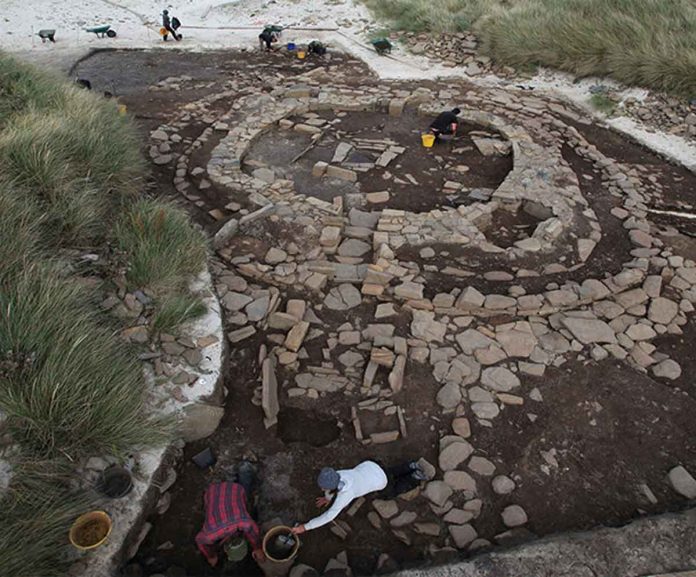University of Huddersfield researchers used ancient DNA to rewrite the history of the Orkney islands. They wanted to show Orkney experienced large-scale immigration during the Early Bronze Age. This has replaced much of the local population.
Orkney is famous for its archaeological heritage. During the Neolithic period farming first took hold which was 5,000 years ago. It was an influential cultural centre. There are many superbly preserved stone dwellings, temples and megalithic monuments. A style of ceramics that have spread out across Britain and Ireland.
As Europe moved into the Bronze Age, Orkney became left behind. Its influence dwindled and it became more insular.
Scientists combined archaeology with the study of ancient DNA from Bronze Age human. Now scientists know much more about this time than ever before. The results surprised geneticists and archaeologists.
Scientists have shown that Orkney experienced large-scale immigration during the Early Bronze Age. The new arrivals were probably the first to speak Indo-European languages. They carried genetic ancestry derived in part from pastoralists living on the steppe lands north of the Black Sea.
The expansion of pastoralists on the eve of the Bronze Age was typically led by men, across most Europe. Women were being sucked into the expanding populations from local farming groups. In Orkney, scientists have found the Bronze Age newcomers were mainly women. The male lineages from the original Neolithic population survived for at least another thousand years. The Neolithic lineages were replaced from the Iron Age and are rare today.
Scientists said the answer may lie in the long-term stability and self-sufficiency of farmsteads on Orkney. The genetic data suggests may have already been male dominated by the peak of the Neolithic. They may have been uniquely placed to weather harsher times and maintain their grip on the population as newcomers arrived. This implies that Orkney was much less insular than scientists thought. There was a protracted period of negotiation between the indigenous males and the newcomers from the south.

